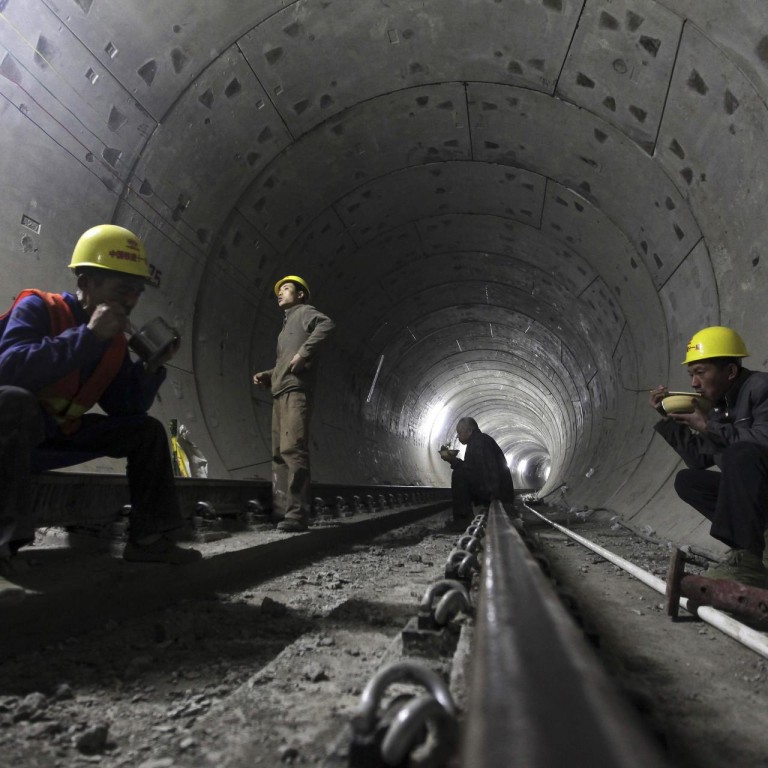
Government pins hopes for growth on public transport and utilities infrastructure plan
Beijing urges urban areas to focus on building underground infrastructure to support economy
The government unveiled detailed plans to boost urban infrastructure, especially underground facilities, such as subways, drainage and utilities, in support of the nation's urbanisation drive.

It echoed Li's recent comments that pumping new investment into poorly built infrastructure could help spur growth and help put the economy on an even keel without causing overcapacity in industry, experts said.
Cities are being asked to give priority to public transport, with the State Council setting a goal to extend subways and light rail systems by 1,000 kilometres nationwide by 2015. The statement also seeks to raise the standard of urban road networks, stating that all bridges that are deemed deficient or dangerous should be repaired by 2015.
Underground pipeline networks will also be upgraded. By 2015, up to 80,000 kilometres of gas pipelines and 92,800 kilometres for heating will need to be improved.
Cities will also need to improve their flood-control systems in the coming decade. Currently, such systems that exist are generally in poor condition. According to the Ministry of Housing and Urban-Rural Development, more than 60 per cent of mainland cities suffered severe flooding caused by storms between 2008 and 2010.
The statement says 36 large cities should collect and properly dispose of all waste water and household garbage by 2015. Nationwide, up to 85 per cent of urban sewage, 70 per cent of sludge and 90 per cent of urban waste should be properly treated.
Each city will also have public green areas by 2015, according to the statement, local governments were also warned to avoid shoddy work or vanity projects.
Yuan Chongfa , an urbanisation specialist at the China City Development Academy, said the plan to upgrade urban infrastructure was designed to drive economic growth as the leadership struggled to find ways to avoid a slowdown.
"The central government still needs to rely a great deal on investment to maintain the momentum of economic growth, and investment in infrastructure - especially that in fairly poor condition - was a rather safe and reasonable choice," Yuan said.
Mainland authorities have often failed to pay adequate attention to the construction quality of urban infrastructure, resulting in problems such as flooding and accumulation of rubbish.
"This is the time the government should work on these problems," Yuan said.
He also noted that investment in urban rail networks could increase links between cities and could promote the formation of city clusters, a development that could help to drive long-term growth, Yuan said.

